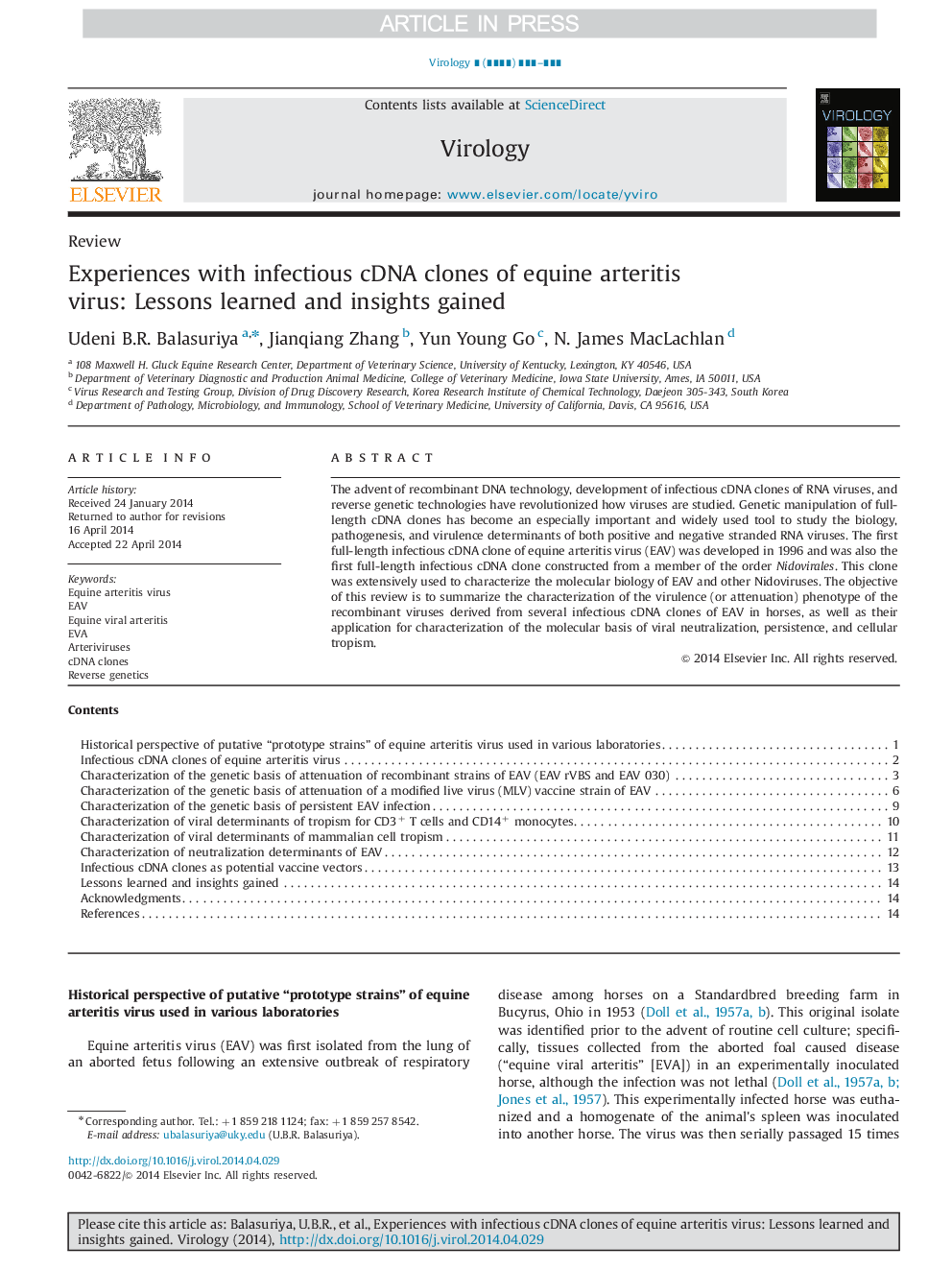| Article ID | Journal | Published Year | Pages | File Type |
|---|---|---|---|---|
| 6139907 | Virology | 2014 | 16 Pages |
Abstract
The advent of recombinant DNA technology, development of infectious cDNA clones of RNA viruses, and reverse genetic technologies have revolutionized how viruses are studied. Genetic manipulation of full-length cDNA clones has become an especially important and widely used tool to study the biology, pathogenesis, and virulence determinants of both positive and negative stranded RNA viruses. The first full-length infectious cDNA clone of equine arteritis virus (EAV) was developed in 1996 and was also the first full-length infectious cDNA clone constructed from a member of the order Nidovirales. This clone was extensively used to characterize the molecular biology of EAV and other Nidoviruses. The objective of this review is to summarize the characterization of the virulence (or attenuation) phenotype of the recombinant viruses derived from several infectious cDNA clones of EAV in horses, as well as their application for characterization of the molecular basis of viral neutralization, persistence, and cellular tropism.
Related Topics
Life Sciences
Immunology and Microbiology
Virology
Authors
Udeni B.R. Balasuriya, Jianqiang Zhang, Yun Young Go, N. James MacLachlan,
